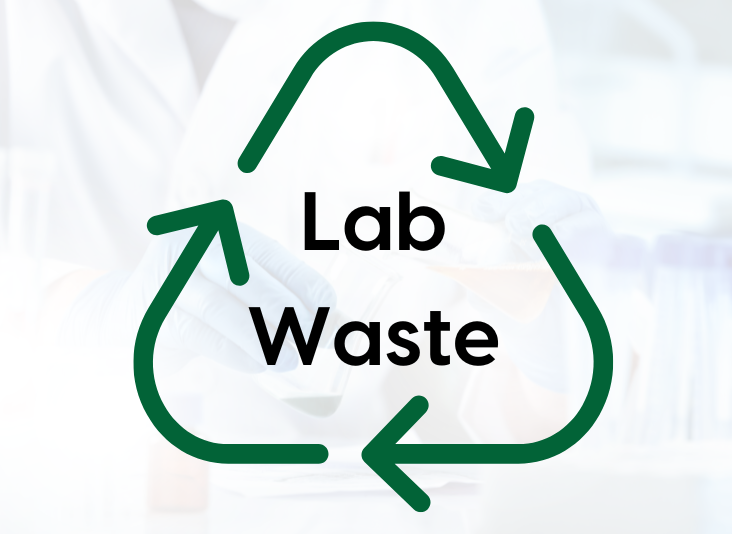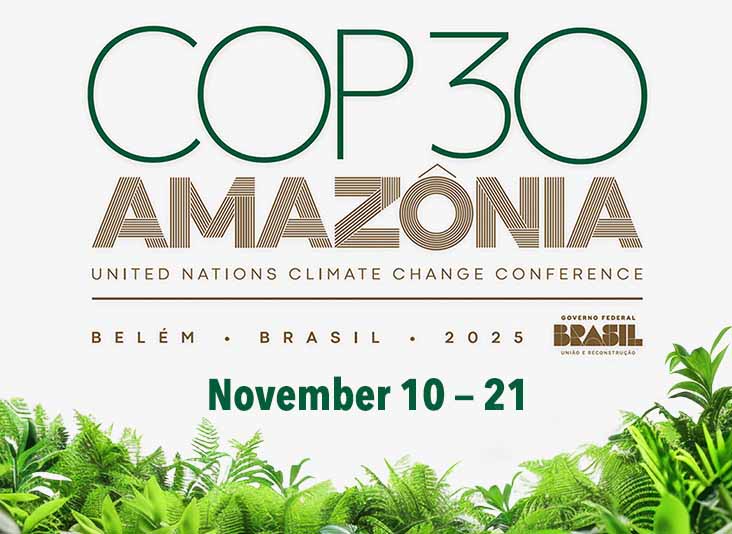Lab Waste: Why Recycle? 4 Reasons to Recycle Lab Waste
Discarded lab waste poses a major environmental and public health challenge. Fortunately, there are strategies to mitigate these dangers. By recycling even a portion of this, researchers can drastically reduce the footprint of their lab.
Around 2.12 billion tons of waste is dumped annually across the globe. Labs generate much of this amount, of all different types and waste streams. In the life sciences industry alone, for example, scientists generate 5.5 million tons of plastic waste per year—and when you consider that these scientists account for only 0.1% of the population, this number becomes even more worrisome. And that is only accounting for plastic waste and not all the other waste types generated in these facilities.
Any waste, improperly disposed of, can have an immediate and significant impact on human health and the environment. However, the very nature of laboratory waste means that it especially can have a greater environmental impact. When improperly managed, discarded lab waste can lead to safety problems and environmental damage.
For facility managers overseeing waste generation or disposal, it is crucial to consider the full waste stream lifecycle in the most sustainable way. Upstream waste management and more eco-friendly downstream disposal options can mitigate these health and safety problems while simultaneously improving business operations. This can mean savings in resources usage and cash spend—we’ll explore this more below.
Laboratory Waste Types and Associated Risks
Labs are the pinnacle of scientific research and discovery. For them to succeed at innovation and experimentation, they deal with many different and complex materials on a daily basis. Technical supervisors, principal investigators (PIs), and others overseeing lab facilities need to take on a holistic approach when implementing a waste management and disposal plan, including considerations for:
- Biohazard waste: This is generated during illness treatment or clinical trials. Biohazard wastes are hazardous due to their infectiousness, as they are typically contaminated with blood or other infectious human fluids. Contact with these waste fluids can sicken or even kill people. Sometimes also referred to as medical, biomedical, or infectious waste, this category includes:
- Sharps
- Anatomical waste
- Bodily fluids like blood, urine, or perspiration
- Hazardous waste: This consists primarily of byproducts that include harmful—and frequently carcinogenic—chemical compounds or used solvents. Hazardous wastes may also be any products with toxic mixes, like batteries or mercury-based lab items. These wastes can harm workers not wearing personal protective equipment (PPE) when exposed to them.
- Plastic waste: This category includes packing materials used to transport and protect laboratory supplies or to collect lab waste products. When used during illness treatment or medication delivery, plastic waste can also be tied to biohazard waste. Examples include:
- Plastic bags
- Petri dishes
- Sharps boxes
- Pipette tips
- Other waste: Other waste that can be generated during routine lab operations are rubber, carboard, paper, and more. These wastes tend not to directly harm those working with them, but can pollute and otherwise harm the environment—and thus cause human health concerns in the long term.
Any release of lab waste into the environment is never totally safe nor harmless. Plastics especially can contribute to air, water, and land pollution. Air pollution increases the risk of respiratory illnesses, heart disease, lung cancer, and more—while simultaneously causing environmental destruction. Ocean pollution decreases overall marine health—and the bioaccumulation of pollution in the food chain ultimately harms humans who eat fish or other ocean-harvest products. It has been proven time and again that improperly managed waste can cause problems for both human and environmental health.
4 Reasons to Recycle Lab Waste
Luckily, there are reliable, proven methods to safely and securely dispose of all the types of lab wastes and effectively reduce the burden of these wastes on humans and the environment. Recycling is one of these solutions, and a variety of different recycling and treatment procedures are available for different waste materials or streams.
Lab waste recycling offers a number of benefits, including:
1. Contribution to a circular economy: Recycling allows materials to be reused—increasing their overall ROI and decreasing reliance on the raw materials needed to make new products. This not only helps protect the environment from harmful mining and drilling, but also helps improve organizational bottom line.
2. Improvement of landfilling processes: When materials are recycled, fewer waste products must therefore go to the landfill. This cuts the space necessary to house these wastes and reduces overall landfill greenhouse gas emissions. Consequently, landfilling processes can be improved since only the most fitting wastes are heading there and the system isn’t overburdened with trash.
3. Sustainability goal success: There has been a tremendous push for increased organizational sustainability from the general public and governing bodies alike. One of the ways to reach these lofty goals is through recycling—which can also:
- Increase customer loyalty
- Protect the environment
- Ease the path to sustainability compliance, which is likely to become legally mandated as these pushes continue
4. Improvement to brand and/or corporate image: According to the United Nations (UN) 2022 Sustainable Development Goals (SDG) Report, the triple planetary crisis of climate change, biodiversity loss, and pollution are the result of unsustainable patterns of consumption and production, occurring in part as a result of a significant portion of the world's waste being improperly managed. Promoting or utilizing recycling for lab waste disposal is consistent with UN SDG 12, "Responsible Consumption and Production.” Adherence to such best practices can shine a positive light on an organization—something consumers and governing bodies will respond well to.
Lab Waste Recycling for You
To guarantee efficient lab waste disposal, a comprehensive approach is necessary—from upstream waste management processes that include waste stream separation, labeling, and handling, all the way to downstream utilization of sustainable waste disposal methods. Luckily, Triumvirate Environmental can help you every step of the way. With efficient and productive waste management and disposal options and a facility poised to recycle even the most challenging wastes, we can ensure you get all the benefits of a recycling program without disrupting your day-to-day operations. Interested in learning more? Contact us today.






